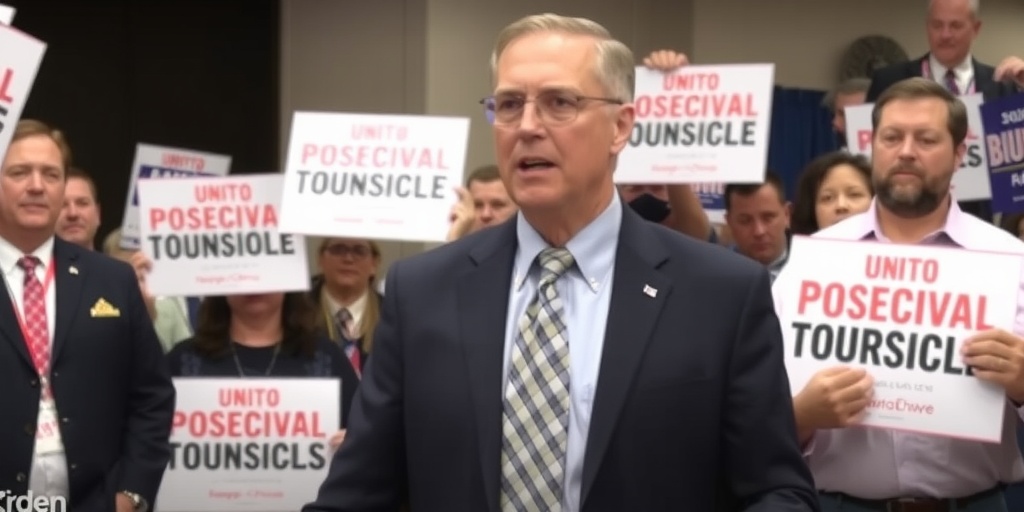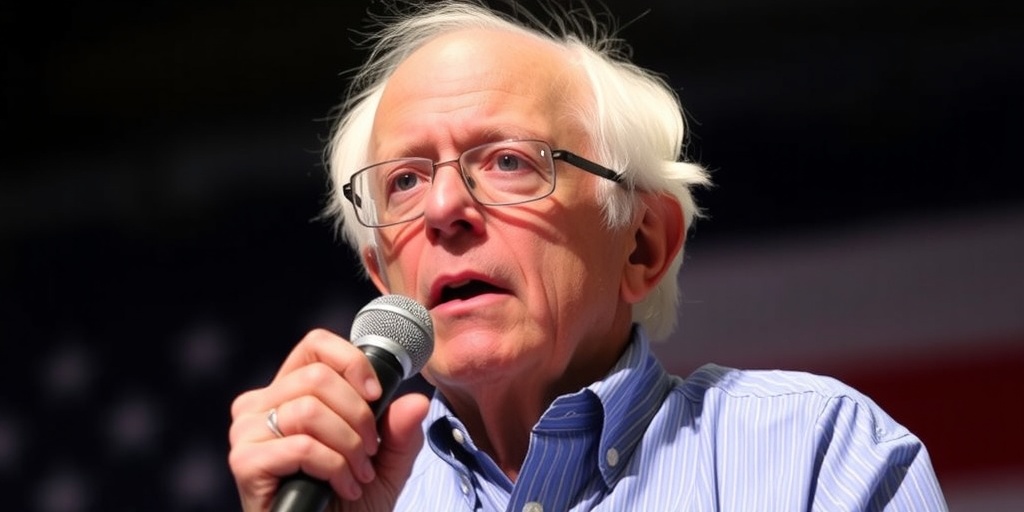Now Reading: Senate GOP Approves Budget Resolution, Avoids Tough Issues
-
01
Senate GOP Approves Budget Resolution, Avoids Tough Issues
Senate GOP Approves Budget Resolution, Avoids Tough Issues

Republicans Move Forward with Budget Plan Amid Controversial Financial Questions
In a decisive yet contentious move, Senate Republicans approved a budget plan on a narrow 52-48 vote early Friday, marking a preliminary step towards fulfilling President Trump’s ambitious domestic initiatives. This action comes with significant implications for military spending, border security, and tax reforms, yet it leaves many critical financial aspects unresolved.
The budget blueprint outlines a proposed increase of $150 billion in military expenditure and an additional $175 billion aimed at enhancing border security over the next ten years. While this ambitious financial framework has garnered support from party leaders, it has sparked crucial questions regarding funding sources — questions that, according to Republican senators, are earmarked for future discussions.
House Republicans are currently facing their own challenges as they strive to delineate at least $2 trillion in spending reductions to align with Trump’s fiscal goals and appease the party’s conservative factions. Their strategy involves consolidating vast tax cuts and sweeping policy reforms into a single, substantial legislative package, which they hope will go to vote as early as next week. However, the plan’s trajectory is fraught with challenges given the House’s slim Republican majority.
Senate leaders seem to be banking on an approach that prioritizes immediate political gains for Trump, particularly in the realm of border security, while postponing more complex fiscal matters, such as spending cuts and tax reforms, to a later date. Senator Lindsey Graham of South Carolina, who chairs the Senate Budget Committee, emphasized the need to ensure funding for border security now. “We want to make the tax cuts permanent,” Graham stated, underlining the need for timely financial resources to maintain momentum in Trump’s anti-immigration agenda.
While Senate Republicans have yet to finalize the specifics of funding their ambitious spending increases, Graham indicated a mix of new revenue generated from domestic drilling and undefined spending cuts would be part of the solution. He mentioned that Senate committees have been tasked with identifying at least $1 billion in cuts each to help defray costs over the next four years.
The Senate’s decision to back this two-bill strategy highlights the urgency perceived by Republican leaders in swiftly addressing border enforcement funding, while simultaneously sidestepping more formidable discussions on tax reduction details. Extending past tax cuts, specifically those enacted in 2017, is projected to cost approximately $4 trillion. Many of the tax measures championed by Trump during his campaigns, including the elimination of taxes on tips and Social Security benefits, would incur even greater expenses.
Senate Republicans express their intent to tackle these intricate financial puzzles later this year, opting instead to prioritize funding for Trump’s enforcement operations at the southern border. “President Trump’s actions are working — they are working so well that the Trump administration says it is running out of money for deportations,” asserted Senator John Barrasso of Wyoming, the Senate’s No. 2 Republican.
Despite this urgent push, the Senate’s approach reflects a cautious acknowledgment of the difficulties their comprehensive tax and spending plan may encounter in the House. The Senate proceeded with its budget proposal even after Trump lent support to the House’s all-in-one bill strategy, perhaps as a contingency to safeguard against potential setbacks.
Senate Majority Leader John Thune of South Dakota stated, “If the House can produce one big, beautiful bill, we’re prepared to work with them to get that across the finish line. But we believe that the president also likes optionality.”
While the House’s budget plan articulates a more detailed vision for identifying spending cuts, it similarly lacks specificity concerning which federal programs will be targeted and by how much. The legislation mandates that detailed outlines of policy changes to meet their fiscal targets only emerge after both the House and Senate approve their budget resolutions.
Concerns are already arising among some Republicans about potential cuts to essential funding programs. A group of House Republicans affiliated with the Congressional Hispanic Caucus recently cautioned party leaders about the need to safeguard assistance programs, noting that nearly 22 percent of Hispanic families rely on critical support such as food stamps during challenging times.
In stark terms, Senator Josh Hawley of Missouri expressed his discontent with the notion of substantial Medicaid reductions, advocating that “we should have no Medicare cuts of any kind.” As these discussions unfold, it is clear that the road ahead for the Republican budget plan will be a challenging one, filled with substantial disagreements and critical decisions that will shape the nation’s fiscal future.
Stay Informed With the Latest & Most Important News
Previous Post
Next Post
Previous Post
Next Post
-
 01New technology breakthrough has everyone talking right now
01New technology breakthrough has everyone talking right now -
 02Unbelievable life hack everyone needs to try today
02Unbelievable life hack everyone needs to try today -
 03Fascinating discovery found buried deep beneath the ocean
03Fascinating discovery found buried deep beneath the ocean -
 04Man invents genius device that solves everyday problems
04Man invents genius device that solves everyday problems -
 05Shocking discovery that changes what we know forever
05Shocking discovery that changes what we know forever -
 06Internet goes wild over celebrity’s unexpected fashion choice
06Internet goes wild over celebrity’s unexpected fashion choice -
 07Rare animal sighting stuns scientists and wildlife lovers
07Rare animal sighting stuns scientists and wildlife lovers





















